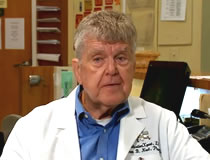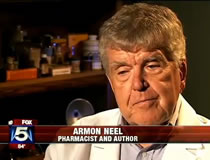October 10th, 2014
NSAIDs May Boost Risk of Venous Thromboembolism
NSAIDs May Boost Risk of Venous Thromboembolism
October 8, 2014
NEW YORK - Pooled data from observational studies show a significantly increased risk of venous thromboembolism (VTE) among NSAID users versus nonusers, according to U.S. and Thai researchers.
"This possible relationship between NSAIDs and VTE is of significant public health concern, given their popularity and accessibility. Further investigation to establish the cause-and-effect is merited," lead author Dr. Patompong Ungprasert of Bassett Medical Center in Cooperstown, New York told Reuters Health by email.
In a September 24 online paper in Rheumatology, Dr. Ungprasert and colleagues report on a meta-analysis of five case-control studies and one cohort study covering more than 21,000 VTE events.
The pooled risk ratio of VTE in NSAIDs users was 1.80. Statistical heterogeneity between studies was high, most likely because of differences in study design, definitions of NSAID exposure, and sample population, the investigators say.
The VTE risk appeared to be even higher among COX-2 inhibitor users, with a 1.99-fold increased risk, although this difference was not significant.
Nevertheless, say the investigators, this finding might provide further evidence that the increased VTE risk comes primarily from COX-2 inhibition. Aspirin, a specific and irreversible COX-1 inhibitor, has proved effective for VTE prevention.
In fact, they point out that inhibition of the COX-2 enzyme inhibits the synthesis of prostacyclins, potent platelet activation inhibitors, while stimulating the release of thromboxane, a potent platelet aggregation facilitator. This activation and aggregation of platelets might induce a coagulation cascade and clotting.
Commenting on the findings, Dr. Bruce Davidson of the University of Washington School of Medicine in Seattle told Reuters Health by email that the concept that "taking NSAID drugs might increase the risk of getting deep vein thrombosis or pulmonary embolism is an intriguing possibility."
But Dr. Davidson, who has conducted research in the field, also pointed out that "patients taking NSAID drugs are more likely to be older, move around less, have had surgery or rheumatic diseases, all factors that themselves increase the risk of blood clots before the NSAID drug is taken. Moreover, NSAIDs increase bleeding, which weighs against but doesn't negate that they might also increase clotting."
"Finally," he concluded, "80% more likely may seem like a lot but in these types of studies one would like to see double or higher the risk to believe the finding to be true."
Dr. Ungprasert and colleagues stress that the study does not provide evidence of a cause-and-effect relationship. However, they say, physicians should be aware of this association and NSAIDs should be prescribed with caution, especially in patients at high baseline risk of VTE.
SOURCE: http://bit.ly/1CV4JFR
Rheumatology 2014.
- December 22nd, 2012
FDA Issues Pradaxa Valve WarningRead - December 23rd, 2014
Advances in the Primary Prevention of Alzheimer's DiseaseRead - January 7th, 2013
AHA Adds Its Weight to NSAID Risk MessageRead - March 30th, 2014
CHANGES IN BLOOD PRESSURE PARAMETERS ???Read - July 8th, 2015
Men with borderline low testosterone are more prone to depressionRead
Geriatric Nutrition
Without good nutrition, positive drug therapy outcomes are very difficult to obtain, For the best in Geriatric Nutritional Information
Find out more Optima SolutionsContinuing Education
Each month we will post an analysis of specific aspects of government long-term healthcare regulations.
Find out more


